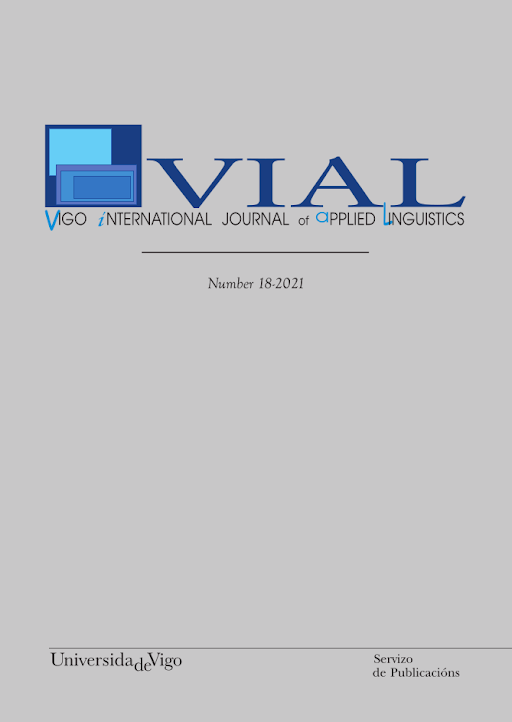Teachers’ oral corrective feedback and learners’ uptake in high school CLIL and EFL classrooms
DOI:
https://doi.org/10.35869/vial.v0i18.3368Palabras clave:
Oral corrective feedback, corrective feedback episodes, EFL, CLIL, learning contextResumo
Oral corrective feedback (OCF) has been reported to be affected by several factors such as learners’ age, level of proficiency or the OCF types provided by the teacher. However, little research has been carried out on the variable learning context, even though OCF and uptake vary in rates and types in second language (SL) and foreign language (FL) settings. Moreover, OCF has been clearly under-researched in classrooms that follow a content and language integrated learning (CLIL) approach. As CLIL programs are being widely implemented mainly in European settings and differences in context characteristics suggest variations in OCF and learners’ uptake, the present study aimed to compare the recorded classroom interaction data (22 hours 43 minutes) from an intact class of learners (N=26) in their last year of secondary education (age 17-18), attending the lessons of an English as a FL (EFL) teacher and a Business Studies (CLIL) teacher. Findings show significant differences as to the proportion and OCF types used, as well as different learners’ behavior regarding the rates of uptake and repair and the uptake after the use of recasts. Pedagogical implications are offered as to how to maximize the potential benefits of OCF in FL classrooms.
Descargas
Descargas
Publicada
Número
Sección
Licenza
Libros UVigo é o portal de publicación en acceso aberto das revistas da Universidade de Vigo. A posta a disposición e comunicación pública das obras no portal efectúase baixo licenzas Creative Commons (CC).
Para cuestións de responsabilidades, propiedade intelectual e protección de datos consulte o aviso legal da Universidade de Vigo.



